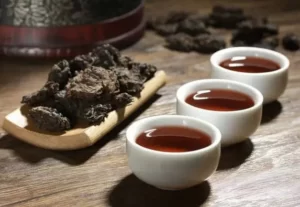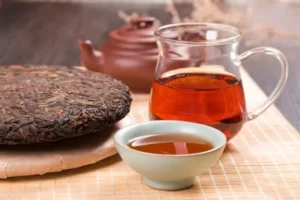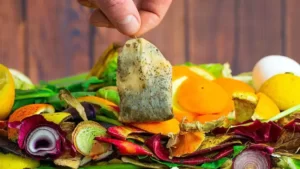“Yes, green tea contains caffeine!” There, I said it. Now, before you start rethinking your daily tea ritual, give me a few moments to delve deeper. If you’ve ever pondered about the caffeine content in your beloved green tea and how it measures up to your morning coffee, this is the perfect read for you.
How Much Caffeine(Thein) Is In a Cup of Green Tea (230-ml)?
So, how much caffeine is really in that steaming cup of green tea you so lovingly brew? For an 8-ounce cup (or 230-ml for those using the metric system), green tea contains between 30 and 50 milligrams of caffeine. Interestingly, if you’re a fan of bagged teas, you might be sipping on a bit more caffeine than your loose leaf tea-drinking friends. Most people think that bagged teas generally tend to pack in more caffeine compared to loose leaf varieties.
How Much Caffeine Should I Consume In a Day?
While thein can offer a quick jolt to get us moving, moderation is key. The FDA suggests that most adults can safely consume up to 400 milligrams of thein daily. That translates to about 10 cups of 230ml of green tea. However, each individual varies, and while some can handle more, others might be more sensitive to even smaller doses. It’s always a good idea to observe how your body reacts and adjust accordingly.
What Has More Caffeine, Coffee or Green Tea?
When put head-to-head, coffee usually reigns supreme in the caffeine game. An 8-ounce cup of coffee contains roughly 95 milligrams of caffeine, almost double that of green tea. So if it’s a potent caffeine kick you’re after, coffee is your go-to. However, if you’re seeking a more subtle boost with added health benefits, green tea might just be your cup of… well, tea!
Is Green Tea OK to Drink Every Day?
Some of my readers have whispered concerns about nightly tosses and turns after an evening cup of green tea. While the caffeine content in green tea is less than coffee, it might still affect sensitive sleepers. Just maybe consider sipping it earlier in the day if you find it affects your sleep. As for the health aspect, green tea is brimming with antioxidants and various health benefits, making it a superb daily drink. Here’s a breakdown of the pros and cons of drinking green tea every day.
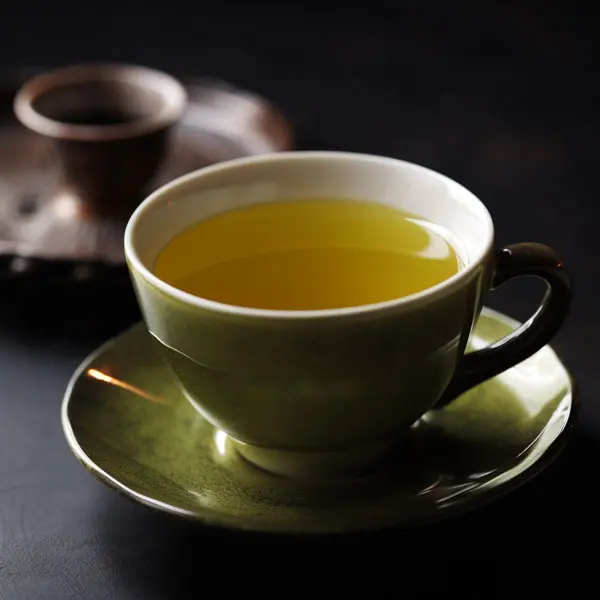
I Love Green Tea, But What If I’m Afraid of The Caffeine?
If you love green tea but are concerned about the caffeine content, there are a few things you can consider:
- Decaffeinated Green Tea: Decaf green tea is available in most grocery stores. It undergoes a process to remove most of the caffeine, allowing you to enjoy the flavor without the stimulant. Keep in mind, however, that the decaffeination process may also remove some of the beneficial compounds found in green tea.
- Drink Lesser Amounts: You can drink smaller amounts of green tea, so you consume less caffeine but still get to enjoy the taste.
- Shorter Steeping Time: The longer you steep the tea, the more caffeine is extracted. By steeping your green tea for a shorter amount of time (1-2 minutes instead of the common 3-5 minutes), you can reduce the caffeine content.
- Use Cooler Water: Brewing green tea with slightly cooler water can extract less caffeine. This might also help preserve some of the delicate flavors and antioxidants in the tea.
- Multiple Infusions: The first infusion of tea leaves tends to contain the most caffeine. If you steep the same leaves multiple times, subsequent infusions will have less caffeine.
- Caffeine Content Varies: Different brands and types of green tea can have varying amounts of caffeine. Generally, younger tea leaves (like those found in higher-quality teas) tend to have more caffeine. But, the processing method and other factors can also influence caffeine levels.
- Understand Your Sensitivity: Some people are more sensitive to caffeine than others. While one person might feel jittery after a cup, another might feel just fine. Pay attention to how green tea affects your body and adjust your consumption accordingly.
- Alternative Teas: You might consider trying herbal teas, which are naturally caffeine-free. While they won’t have the exact same flavor profile as green tea, there are many delicious and healthful herbal options out there. For example, rooibos (also known as red tea) has a somewhat similar taste profile and is naturally caffeine-free.
- Mix with Other Teas or Herbs: You can blend green tea with other herbs or caffeine-free teas to dilute the caffeine content while retaining some of the green tea flavor.
Conclusion
So there you have it! Green tea does indeed have caffeine, but it’s a gentler cousin to our robust coffee. Whether you’re seeking health benefits, a calming ritual, or a mild pick-me-up, green tea offers a well-rounded beverage choice. But, as with everything, moderation and mindfulness are key. Cheers to your next brew, and happy sipping!
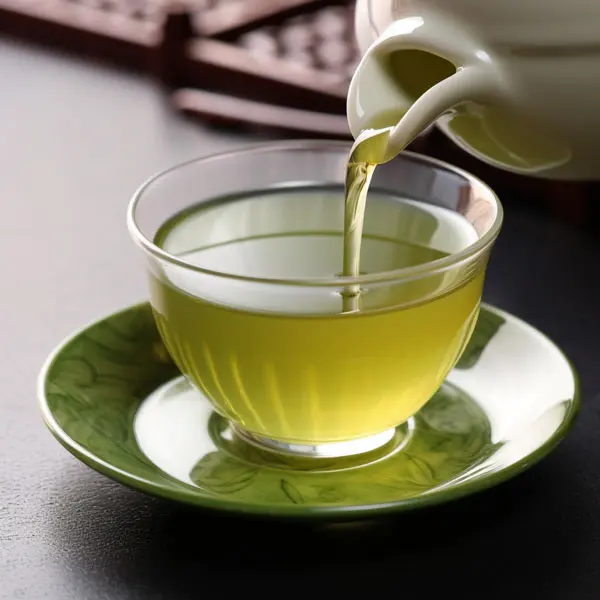
FAQ
Q1: Can I decaffeinate my green tea at home?
A: While there’s a popular myth that briefly steeping tea can remove most of its caffeine, it’s not entirely accurate. This method can reduce some caffeine, but not all. If you’re sensitive to caffeine, consider buying decaffeinated green tea.
Q2: How does the caffeine in black tea compare to green tea?
A: Black tea usually contains more caffeine than green tea, ranging from 40-70 milligrams per 8-ounce cup, depending on the specific blend and preparation. Read More
Q3: Are there any side effects of consuming too much green tea?
A: Yes, while green tea is beneficial, excessive consumption can lead to headaches, digestive problems, or sleep disturbances due to its caffeine content. Always enjoy in moderation.
